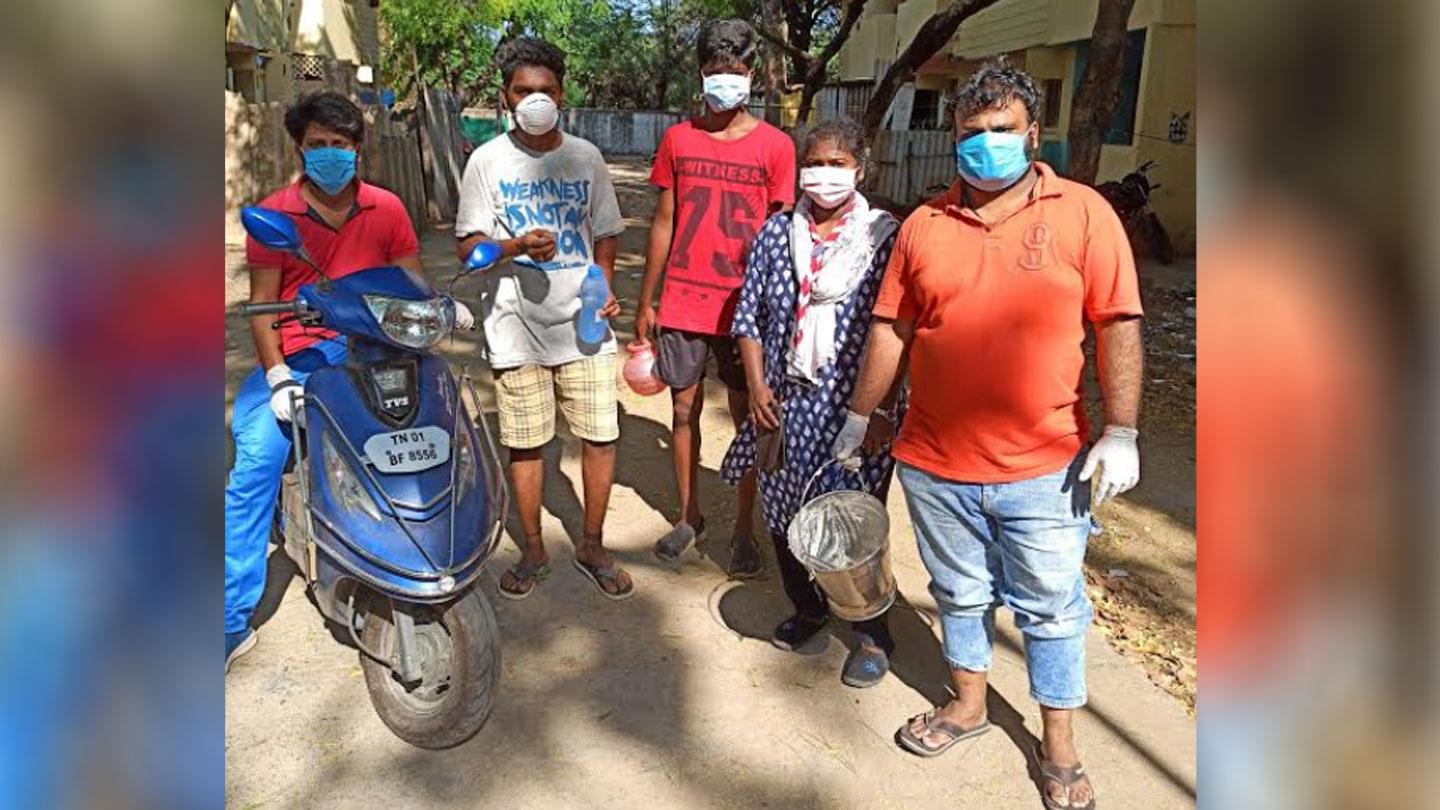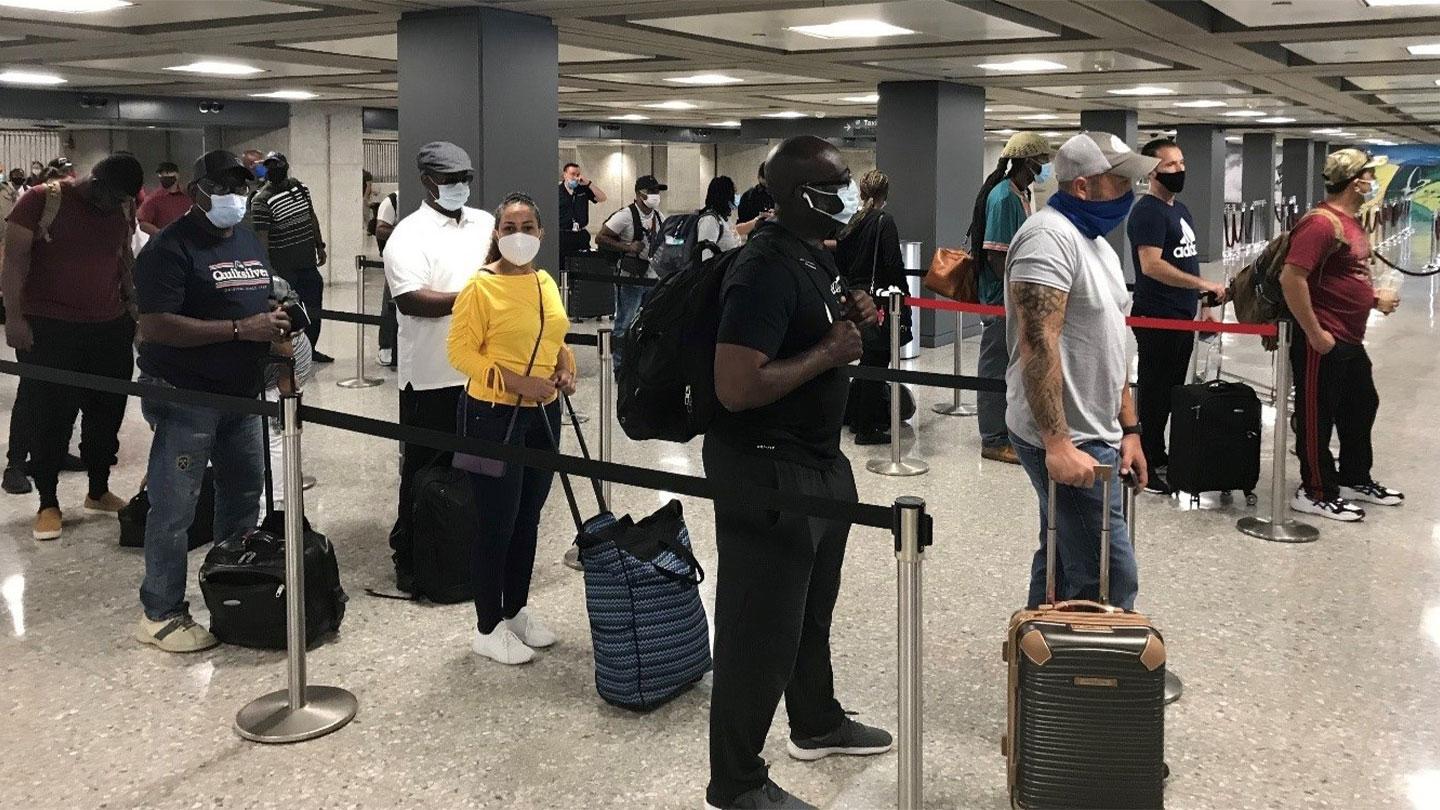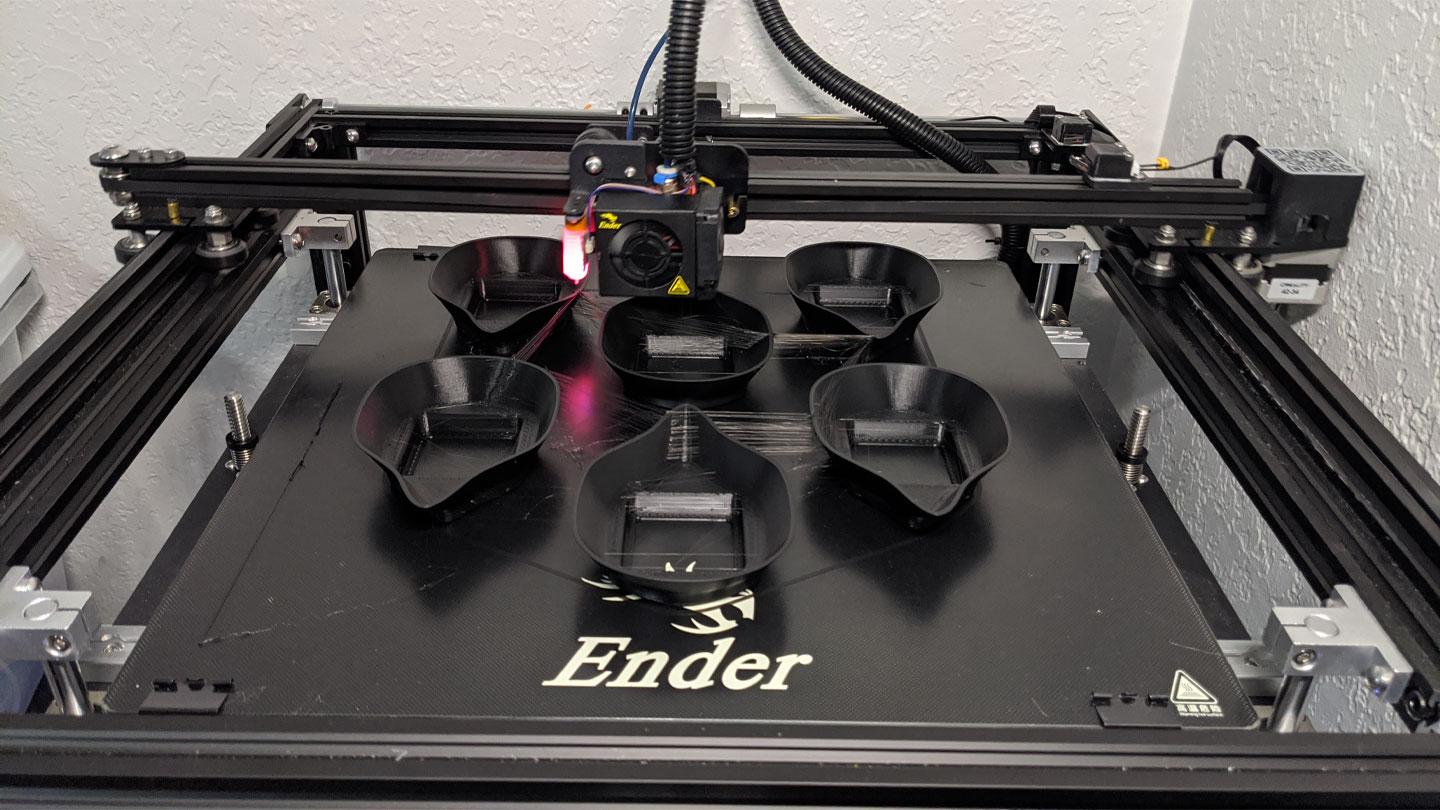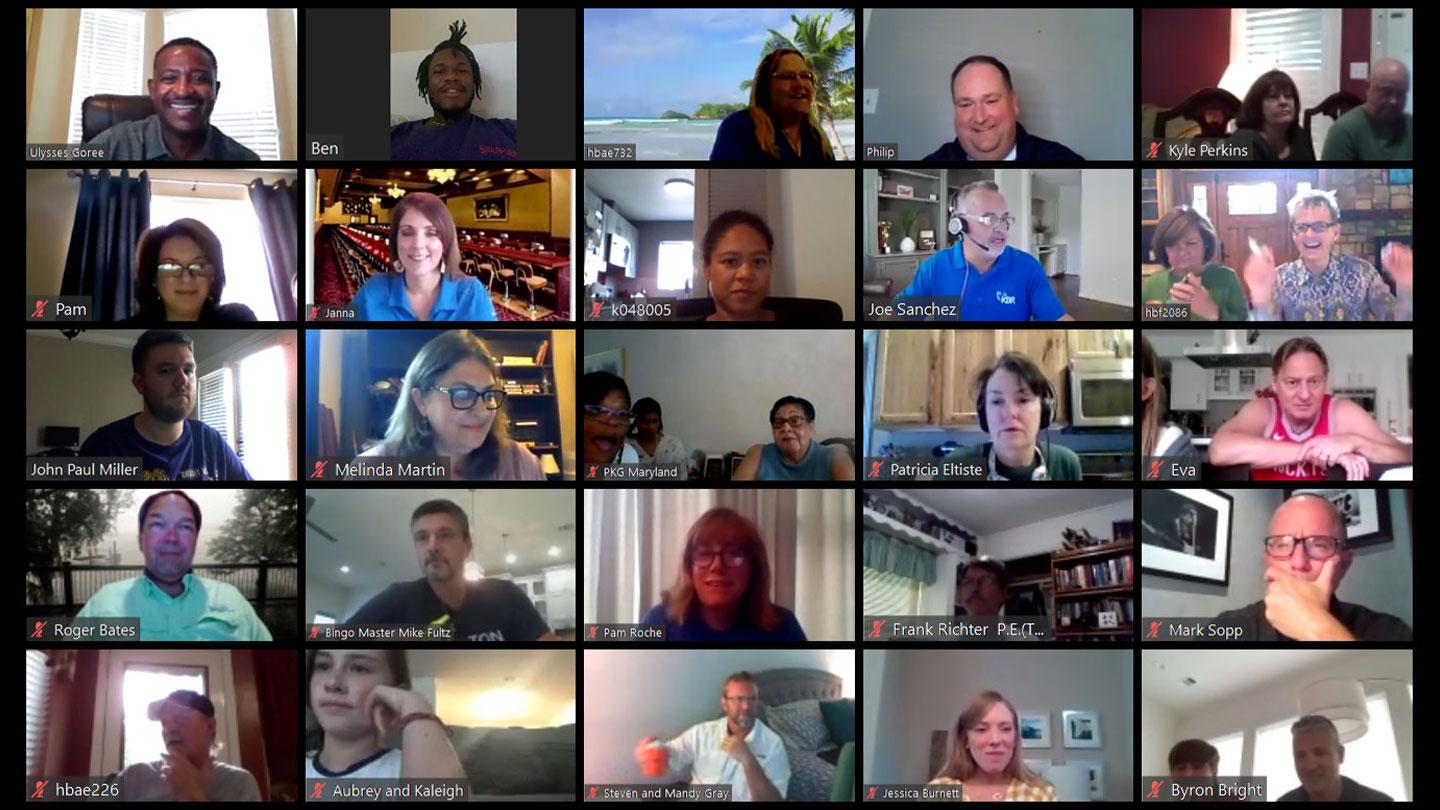One Year Later: KBR’s Extraordinary Efforts Taking on COVID
Last March, the World Health Organization officially declared COVID-19 a global pandemic as the novel coronavirus continued to rapidly spread worldwide.
From the get-go, KBR took a proactive role to ensure our people, families and customers were safe – and that we were all doing our part to slow the spread of COVID-19. In mid-January, our leadership team activated a special executive task force to monitor and respond to developments in real time.
Early on, we implemented business travel restrictions to and from affected areas to protect our people and customers. We also enforced local emergency response plans in impacted areas based on government requirements and the needs of customers.
But this was the least we could do, and only the beginning. Now, one year later, we reflect on some of the unseen and extraordinary ways KBR has cared for employees, customers, and communities during a time that will be forever remembered.
Protecting our own with new international charter flight program
KBR provides responsive, full-service base operation services and contingency support to forces deployed around the world under the Logistics Civil Augmentation Program contract (LOGCAP).
In early 2020, countries around the world closed their borders and suspended international air travel. KBR LOGCAP employees were stranded in various locations around the globe and unable to return to their duty locations or depart for normal travel.
To solve this problem, KBR’s LOGCAP team expanded their inter-Iraq charter operation to an international one. This allowed our employees safe and COVID-19 free travel to and from Iraq.
After careful coordination with the U.S. government and the Kurdistan Regional Government authorities in Erbil, Iraq, KBR executed its first ever transatlantic charter for the LOGCAP IV program on July 19, 2020.
Employees were geographically grouped in the U.S., Europe, Africa and southeast Asia. KBR organized international charter flights to accommodate those groups. After the initial “backlog” of stranded employees returned home, KBR planned additional charters as needed. More than 1,000 employees returned to work in Iraq utilizing the international charter program.
“2020 was a year of global hardship and change to which our KBR employees adapted very well,” said KBR LOGCAP Vice President of Operations Mike Flanagan. “Thanks to them and our innovative business solutions, we’ve continued our critical services despite the challenges of COVID-19 pandemic.”
“There’s nothing usual about business these days, but there’s nothing commonplace about our KBR employees either,” said Wayne Lanham, KBR LOGCAP Task Order Manager. “Whether it’s taking care of their families, themselves or the warfighter – KBR always delivers.”
Protecting the community via vaccine efforts
As the world worked tirelessly to create a vaccine to combat the devastating virus, one thing in particular was needed: massive testing.
For months, KBR supported the U.S. government by delivering and setting up mobile trailers to meet the unique demands of the nation’s COVID-19 vaccine trials. Most clinical trials include approximately 3,000 people. However, the government expanded trials for COVID-19 to 30,000 people per vaccine candidate, increasing the sample size ten-fold. Through its LOGCAP contract, KBR helped 40 vaccine trial sites achieve full operating capability and deployed 73 trailers in 16 states. This effort helped vaccine development throughout not only the U.S., but the world.
In addition to our readiness and sustainment expertise, KBR drew on its in-depth knowledge of science and space to combat the spread of disease.
In December of 2019 – at the helm of the outbreak in Wuhan, China, where the virus originated – KBR’s Dr. Afshin Beheshti formed the COVID-19 International Research Team (COV-IRT). Beheshti works as a principal investigator on grants and projects at NASA AMES Research Center in its GeneLab. This non-profit group of more than 200 doctors and scientists began a journey to develop their own therapies against the novel virus. In 2020, COV-IRT launched the COVID-19 Exposure Assessment Tool and a free mask check app in collaboration with RealNetwork.
“I started this group because I had the resources to potentially make a difference. The people who have joined COV-IRT have the same commitment to open science and collaboration in order to positively impact those around them,” Beheshti said.
Since the formation of COV-IRT, the team developed a promising antiviral therapeutic for COVID-19. A vaccine builds up your immunity to prevent you from getting sick, while an antiviral actually kills the virus or greatly reduces symptoms.
“Our next step is to start clinical trials. If this antiviral is as effective as my data indicates, it could greatly improve people’s lives,” he said.
The team is currently applying for funding and looking for investors to help perform all the pre-clinical work that is required for their antiviral.
“If we are able to obtain these funding mechanisms, there will be a path to start clinical trials and test in humans by the end of the year,” he said. “Since all COVID antiviral development is fast tracked, this could potentially be available to the public in 2022.”
As far as COVID treatment options, only time will tell what’s to come – but the commitment of KBR’s scientists is here to stay. COV-IRT plans to continue to exist to tackle future pandemics and current diseases, such as cancer and heart disease.
Protecting the future with philanthropy
The global coronavirus outbreak may have changed the way we all live and work, but it has not put a stop to the charitable spirit at the core of our employees and company. Early in the pandemic, employees around the globe have used their expertise to find ways to give back. Engineers in Oklahoma City volunteered their time, equipment, and resources to make 3D-printed and sewn masks for emergency responders, who were running out.
A fan of everything technology-related, KBR’s Aileen Ko of Leatherhead also used her own 3D printer to make masks for National Health Service works and local care home staff in England. Each mask takes around two and a half hours to print, so she sets her alarm throughout the night to keep the process moving.
“This was an opportunity of a lifetime to work from home and now I have a production line going in the background,” Ko said. “The feedback I received from frontline workers about the lack of personal protective equipment available was heartbreaking. Now I can say that I did something about it!”
Similarly, employees in Lexington Park, Maryland, designed, tested, and produced a flexible 3D ear strap for face masks. The strap connects a mask’s elastic bands behind the head to ease tension on the ears. KBR distributed about 1,500 company-funded straps for hospitals and healthcare facilities throughout the U.S.
With many individuals out of work or quarantining, employees in Chennai stepped in when shelters and food banks closed throughout the city. KBR’s Ragupathi Gnanasekaran helped create a network of friends and family to provide food and drinks to the city’s homeless population. The group raises funds to buy food, water, and groceries, in addition to organically growing and cooking food for distribution to those in need. They serve approximately 150 people a day. In addition to their efforts, the team created an organic sanitizer from a combination of neem leaves paste and turmeric powder diluted in water.
Physical help wasn’t the only source of aid to the public. In July 2020, KBR released mental health tips on coping with COVID-19 from KBR scientists and human performance professionals. The company also hosted a series of virtual events, such as bingo, to raise funds for Feeding America and other organizations.
In its largest contribution, KBR’s fourteenth annual – and socially-distant – charity golf tournament donated a quarter million dollars to frontline workers.
Protecting the mission with a promise to create safer, sustainable world
Despite the numerous challenges, KBR hasn’t lost sight of our mission – in fact, it’s clearer than ever before: we do work that matters. Since the moment COVID-19 entered our lives, KBR employees came together to rise to the occasion each and every time.
It’s hard to say today what the new “normal” will be in the future. In the meantime, KBR will continue making a difference and remain vigilant in our commitment to safe, sustainable delivery – for everyone.







